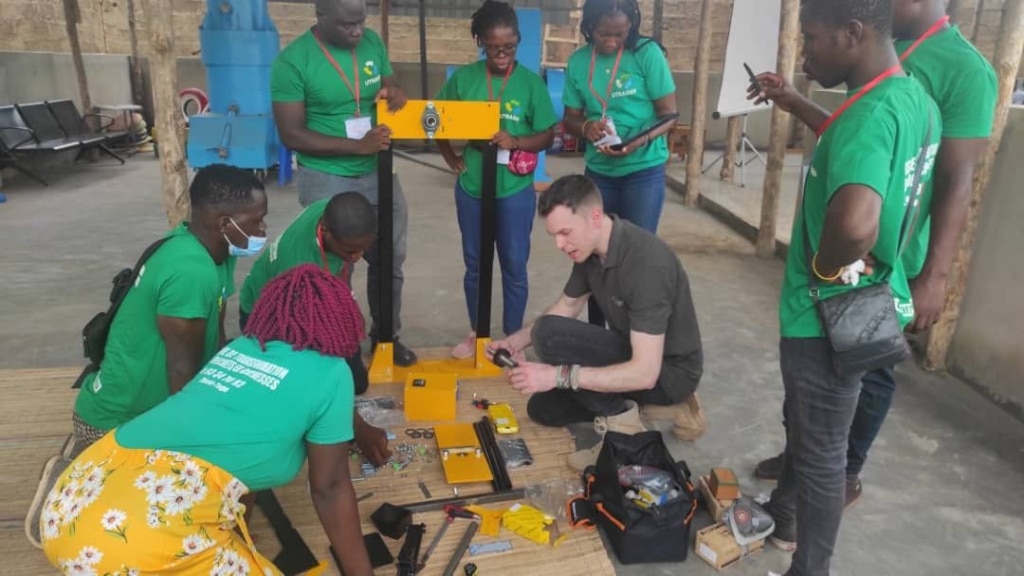In Togo, the landfill site in the capital Lomé collects nearly 250,000 tonnes of waste each year. Utrader, a waste processing plant located in the locality of Davié, 30 km north of Lomé, will train 500 young people in the recycling of plastic materials such as water bags and bottles, old clothes and fabrics, barrels and used tyres.
The 10-day training course is supported by the Youth Economic Initiatives Support Fund (FAIEJ) and the National Agency for Volunteerism in Togo (ANVT). The first cohort of 50 people has just completed its course and is tasked with producing one million bags and shoes from recycled plastic by 2023, in particular with the aim of reducing imports of school bags.
“Waste is an important source of raw material to be recovered. To produce a bag, for example, you need a collector, a weaver, a tailor, an upholsterer, a shoemaker, etc. The Utrader Academy training programme aims to form a large network of young people committed to environmental protection, but at the same time to create businesses and position themselves in the waste recycling value chains,” says Utrader’s Managing Director, Olatokunbo Ige.
Contributing to the development of the green economy
According to the executive director of the association Jeunes volontaires pour l’environnement (JVE) in Togo, the issue of the green economy is entirely based on the transformation of ecological issues into new solutions. “This initiative comes at the right time to give tools to young people and allow them to understand that waste can create jobs. It is important that young people can become financially independent through their activities that contribute to the protection of the environment,” says Séna Alouka.
Read also-AFRICA: Afri-Plastics Awards 15 Sustainable Plastic Waste Management Solutions
In 2008, the municipality of Lomé launched the Lomé Urban Environment Project (PEUL I and II) to collect all the waste produced in this city of 1.8 million inhabitants. This circuit includes pre-collection or direct collection at household level, collection from collection centres, transport and disposal. The 21.2-million-euro project is financed by the Special Delegation of the City of Lomé (10%), the French Development Agency (AFD, 14%), the European Union (EU, 33%) and the West African Development Bank (BOAD, 43%).
Benoit-Ivan Wansi
